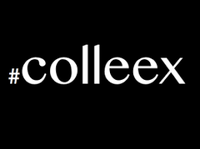Zusammenfassung
- Was Call For Papers — The use·ful·less·ness of the experiment Anthropology and the assembly of the unexpected
- Wann to (Europe/Berlin / UTC100)
- Wo Cieszyn, Poland
- URL https://colleex.wordpress.com/2nd-colleex-workshop-2019-cieszyn-poland/
- Termin herunterladen iCal Datei herunterladen
Beschreibung
Experiments are singular events producing the unexpected: Throwing us questions we didn’t have, changing our notions of values, and creating the conditions of their own appreciation. From experimental cultures in natural sciences to the craft of diverse materials assembled together in artful practices, experiments always entail an assembly: of people, infrastructures, materials and techniques. In this second workshop of the Colleex network we would like to reflect on the ways anthropology arranges its experiments–in fieldwork, representations, or public engagements–and we would like to attend closely to the way these experiments mirror those performed in art practices: What gatherings do our anthropological experiments require? What values do they bring forth?
From practical experiments that test what we already know to experiments carried out for the sake of them, experiments often challenge notions of value–this goes also for the value of the experiment itself. A situation that is not unusual in the experiments of artists and anthropologists: Working with their counterparts in the field and engaging in multiple collaborations, they interfere in coded hierarchies of value and subvert obvious notions of need in shared experimental exercises. Hence, we seek to deepen our reflections on the value of ethnographic experimentation in a dialogue between art and anthropology, particularly foregrounding the use·ful·less·ness of experimentation: that is, the different modes of appreciating their usefulness, uselessness or, even, their ‘usefullessness’. We would like to ask: What new learnings might these dialogues open up? How to appreciate what they bring forth?
In this meeting in Cieszyn (Poland) we foreground how we could relearn our ways of assembling experiments, drawing from a wide variety of artful practices. The Colleex network invites anthropologists who have engaged in art-related experiments, and anthropologically-inclined artful practitioners–such as artists, curators, designers, architects and many others–to share with us the value of our shared experiments. Not limited to these groups, however, the event is open to anyone interested in the workshop’s theme of exploring the use·ful·less·ness of the experiment or the network’s general topic of ethnographic experimentation.
Picking up from our first shared encounter in Lisbon, we want to shift from the conventional workshop and invite any kind of experimental formats, actions and methodologies: interventions, re-enactments, performances, videos, films, installations or mini-exhibitions, and any other format that would provide common room to think while experimenting together. Besides traditional paper-giving we welcome any of these explorations on the way we assemble for learning together.
Submissions
The workshop is open and welcomes to two types of participation: conventional papers, and open formats and interventions. If interested, please send us a 250-words abstract with your proposal in the links provided.
1. Papers. Reflections and nuanced meditations on the value of ethnographic experimentation and its use·ful·less·ness, and more general discussion of ethnographic experimentation. Paper submission: https://tinyurl.com/ycpoygb8
2. Open formats and interventions. Hands-on experiments to try out or develop for the purposes of discussion and provocation, which take place at the workshop venue. We invite a wide variety of actions and interventions displaying an experimental concern with the value and usefulless of ethnographic experimentation: interventions, re-enactments, performances, videos, films, installations or mini-exhibitions, and any other forms of engaging with collected materials that would provide common room/generative space to think while experimenting together. We welcome proposals from both individuals and groups.
Please state in your proposal the following: material needs, spatial requirements, time and number of participants. More information on the Colleex open formats: https://colleex.wordpress.com/colleex-open-formats/ The network has a very limited funding from EASA that could be used for these formats if required. Please state that in your proposal and the estimated funding needed. Open format submission: https://tinyurl.com/y98vcssd
Dates March 11: Submission deadline. March 25 (approx.): Communication of acceptance. July 4-6: Workshop in Cieszyn. Workshop venue The Political Critique Dayroom in Cieszyn „On the Border“ (Świetlica Krytyki Politycznej "Na Granicy" w Cieszynie) The workshop venue is Świetlica Krytyki Politycznej "Na Granicy" w Cieszynie (The Political Critique Dayroom in Cieszyn „On the Border“). It is a social art centre located very close to the border between Poland and the Czech Republic, in a historic part of the town called Cieszyn Venice. Choosing Cieszyn for the 2nd #Colleex workshop is not accidental. Located away from big cities, close to the border, "somewhere in between”, metaphorically refers to the kind of workshop we have in mind. Since 2009, the Political Critique Dayroom in Cieszyn has been a place where artists and activists have carried out projects combining education, politics and social activity, creating their own solutions in social work and carefully influencing tricky spheres of life in the area. The idea of the Dayroom was to intervene symbolically in the boundaries dividing the city, diverting attention away from natural boundaries like the Olza river, and toward differences resulting from social tensions and economic inequalities.
More information of the venue: https://tinyurl.com/yd6lgt93 Contact: colleexnetwork@gmail.comMore information: https://colleex.wordpress.com/2nd-colleex-workshop-2019-cieszyn-poland/
Overview of the first Colleex workshop: https://tinyurl.com/y8m6pfky
Organizing committee. Eeva Berglund (Aalto University, Finland), Adolfo Estalella (Complutense University of Madrid, Spain), Tomasz Rakowski (University of Warsaw, Poland), Anna Lisa Ramella (University of Siegen, Germany), Eva Rossal (Ethnographic Museum in Krakow, Poland), Tomás Sánchez Criado (Humboldt- University of Berlin, Germany).
Local committee. Anna Pluta, Joanna Wowrzeczka, and Natalia Kałuża /Political Critique (Cieszyn) Grzegorz Studnicki /Institute of Ethnology and Cultural Anthropology, University of Silesia (Cieszyn)
Photo: Tear
Kontakt
Nähere Informationen
Anna Pluta, Joanna Wowrzeczka, and Natalia Kałuża /Political Critique (Cieszyn) Grzegorz Studnicki /Institute of Ethnology and Cultural Anthropology, University of Silesia (Cieszyn)
colleexnetwork[ at ]gmail.com

